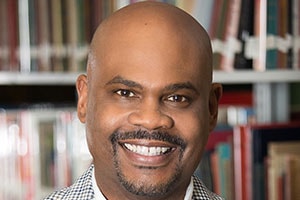Above all else, be intentional.
When it comes to personal spiritual formation, church members, lay and clergy alike, tend to agree that growing one's own faith means engaging in spiritual disciplines with intentionality.
Exactly what one should be purposeful about may need clarification. Within the church, there is a lot of dialogue about being a disciple. So, let's start there.
A disciple is one who knows Christ, is growing in Christ, serving Christ and sharing Christ.
(from "Developing an Intentional Discipleship System: A Guide for Congregations" from Discipleship Ministries of The United Methodist Church)
This includes connecting to God in a personal way and being intentional about seeking out those ways to connect on a regular basis.
The lifelong journey to know Christ, grow in Christ, serve Christ and share Christ can incorporate customary practices, including reading the Bible and praying, as well as take the path of unconventional activities, such as journaling and spending time at the ocean.

Starting the day quietly
"I start every morning in quiet time which consists of reading "The Upper Room," which I started using in 1967 when I was in junior high school," says Kim Simpson, a member of more than 30 years at St. Barnabas United Methodist Church in Arlington, Texas.
"I also use another book and then I spend time in prayer. It can go from 15 minutes to one hour," Simpson says. "That's how I start my day."
Simpson weaves in additional prayer throughout her day when "I feel the Holy Spirit call me to pray for something," she adds, and spends each evening reading the Bible.
"At night, I don't try to read to study," Simpson notes, adding that she is involved in weekly gatherings for in-depth learning. "I just read to let God's Word bathe me. Then I go to sleep thinking about what I've read."
While many turn to the Scriptures or meet with study groups to grow one's faith, others seek less traditional endeavors.

Spiritual growth in action
Pat Rankin, a member at Trinity United Methodist Church in Eugene, Oregon, admits she has trouble being still, so her spiritual formation involves walking the labyrinth in her church's courtyard.
"I walk a lot and prayerfully walk. It's a time for being able to focus and center and kind of just be calm," she says. "It's following a path too, so there's a lot to be said for that, the structure of it. Many times I will go in with a question or a concern and sometimes God speaks and other times He doesn't. At least at that point, I've unburdened myself or put it out there."
If she misses walking the labyrinth or praying with prayer beads, the other spiritual practice in which she engages, Ranki believes her stress level goes up.
"Do those things that bring you joy," Rankin advises. "If it isn't bringing you joy, it isn't right. Really decide if it's right for you, then make it a priority, not just something for when you have time."

Finding God in atypical ways
When it comes to his personal spiritual growth habits, the Rev. Junius Dotson likes to mix it up. As chief executive of Discipleship Ministries of The United Methodist Church, he leads the new #SeeAllThePeople movement, which offers a guide for congregations who want to develop discipleship systems."I'm one of those kinds of people who gets bored very easily," Dotson admits. "Whenever I talk about spiritual disciplines and healthy habits, I always let people know to experiment, to try new things."
Fasting is an important spiritual activity for Dotson, one in which he engages during certain times of the church year, such as Lent, as well as at times when he is working to discern answers for specific challenges.
Although Dotson regularly practices what he calls "healthy habits of a disciple" by being in the Word, praying, engaging in small groups, giving and fasting, the lifelong church member also finds spiritual growth opportunities in what might be considered more secular activities.
"There are some things that we wouldn't consider to be a spiritual discipline but are very helpful in terms of helping us grow," Dotson explains. "I'm a music person. I love all types and varieties. And I know in those moments when I may be feeling dry, going through a dry season in my life, I've always found that reconnecting to music, whether it's going to a concert or hearing the music in a church I am visiting, is a way of jumpstarting my relationship with Christ.
"Find those things that inspire your desire to grow and to grow closer to God," Dotson counsels. "But I do firmly believe there has to be some level of commitment in doing them."
This feature was first published on August 29, 2017, and updated June 8, 2021.
Editor's note: The Rev. Junius Dotson passed away on February 25, 2021.
Crystal Caviness is a PR specialist at United Methodist Communications in Nashville, Tennessee.
You can contact her by email.





